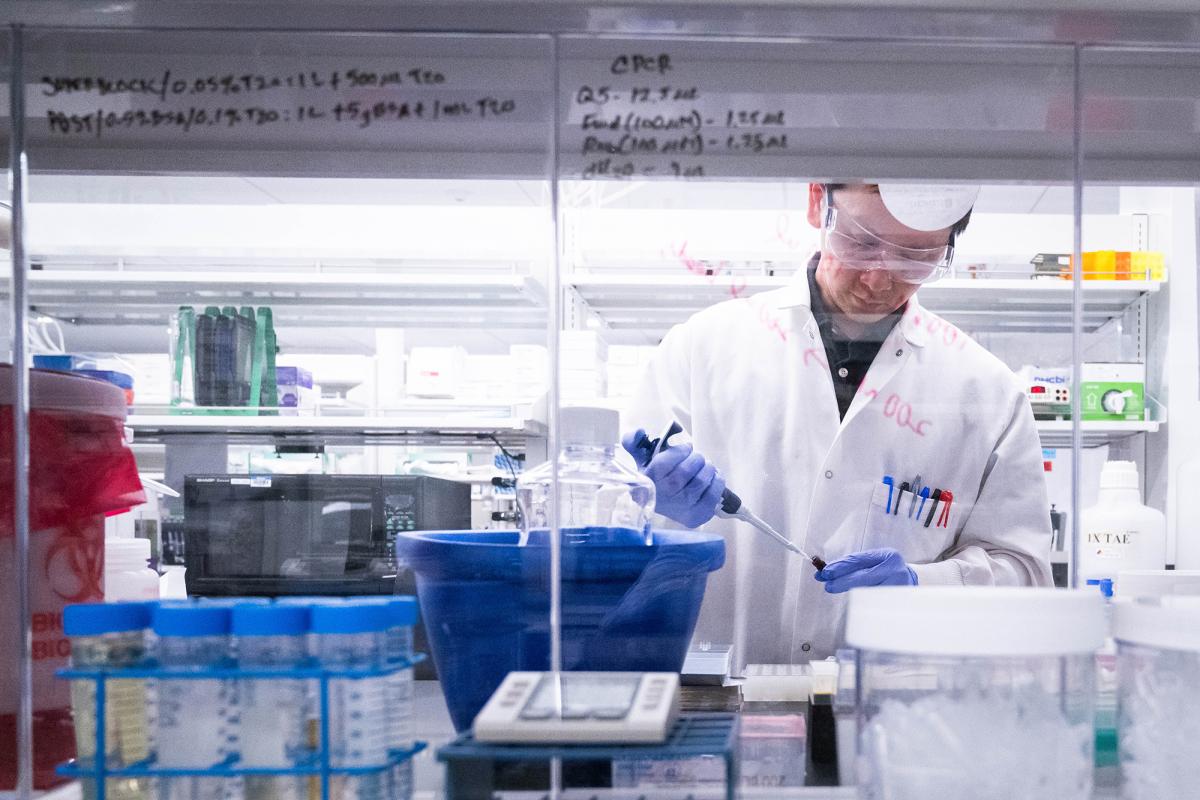Science
Washington’s Strategy to Boost Biotech Competitiveness Against China

The United States is looking to enhance its position in the global biotechnology sector as competition with China intensifies. A recent report highlights that Washington must leverage its private sector’s capabilities to achieve this goal. This strategic shift aims to ensure that American companies can innovate rapidly and efficiently in a market where China is increasingly influential.
To strengthen the biotechnology industry, the U.S. government plans to allocate approximately $12 billion over the next five years. This funding will support initiatives designed to boost research and development, particularly in areas like gene editing and synthetic biology. The National Institutes of Health (NIH) and the U.S. Food and Drug Administration (FDA) are expected to play pivotal roles in overseeing these initiatives, ensuring that investments are directed toward high-impact projects.
Private Sector Engagement is Key
Central to this strategy is the active involvement of private companies. The Biotechnology Innovation Organization (BIO) has emphasized the need for collaboration between public and private sectors to accelerate innovation. By fostering an environment where startups and established firms can thrive, the U.S. aims to maintain its leadership in biotechnology.
Experts argue that the private sector’s agility and creativity are crucial in developing new therapies and technologies. For instance, advancements in mRNA technology, which gained prominence during the COVID-19 pandemic, exemplify how quickly the private sector can respond to urgent health needs. The U.S. government recognizes that to outpace China, it must create incentives for private companies to invest in cutting-edge research.
Regulatory reform is another important aspect of this initiative. The FDA is working on streamlining its approval processes, aiming to reduce the time it takes for new treatments to reach patients. By making the approval process more efficient, the government hopes to encourage companies to invest in innovative solutions without fear of lengthy delays.
Global Implications of U.S. Biotech Strategy
The ramifications of this strategy extend beyond American borders. A robust U.S. biotechnology industry can enhance global health security, particularly in developing nations that rely on innovative treatments and vaccines. Collaborations between American companies and international partners can lead to breakthroughs that address pressing health challenges worldwide.
As the U.S. takes these steps, the implications for the biotechnology landscape are significant. The competition with China is not merely about economic supremacy; it also involves leadership in addressing global health issues. The outcomes of this strategy will determine not only the future of the U.S. biotech sector but also its ability to influence global health policies.
In summary, the United States is gearing up to enhance its competitiveness in biotechnology through substantial investments and regulatory reforms. By harnessing the strengths of the private sector, the U.S. aims to not only keep pace with China but also set the standard for innovation in the global biotechnology arena. The commitment to invest $12 billion over the next five years reflects a clear strategy to bolster American leadership in this critical field.
-

 Technology4 months ago
Technology4 months agoDiscover the Top 10 Calorie Counting Apps of 2025
-

 Health2 months ago
Health2 months agoBella Hadid Shares Health Update After Treatment for Lyme Disease
-

 Health3 months ago
Health3 months agoErin Bates Shares Recovery Update Following Sepsis Complications
-

 Technology4 weeks ago
Technology4 weeks agoDiscover 2025’s Top GPUs for Exceptional 4K Gaming Performance
-

 Technology2 months ago
Technology2 months agoElectric Moto Influencer Surronster Arrested in Tijuana
-

 Technology4 months ago
Technology4 months agoDiscover How to Reverse Image Search Using ChatGPT Effortlessly
-

 Technology4 months ago
Technology4 months agoMeta Initiates $60B AI Data Center Expansion, Starting in Ohio
-

 Technology4 months ago
Technology4 months agoRecovering a Suspended TikTok Account: A Step-by-Step Guide
-

 Health4 months ago
Health4 months agoTested: Rab Firewall Mountain Jacket Survives Harsh Conditions
-

 Lifestyle4 months ago
Lifestyle4 months agoBelton Family Reunites After Daughter Survives Hill Country Floods
-

 Technology3 months ago
Technology3 months agoUncovering the Top Five Most Challenging Motorcycles to Ride
-

 Technology4 months ago
Technology4 months agoHarmonic Launches AI Chatbot App to Transform Mathematical Reasoning


















